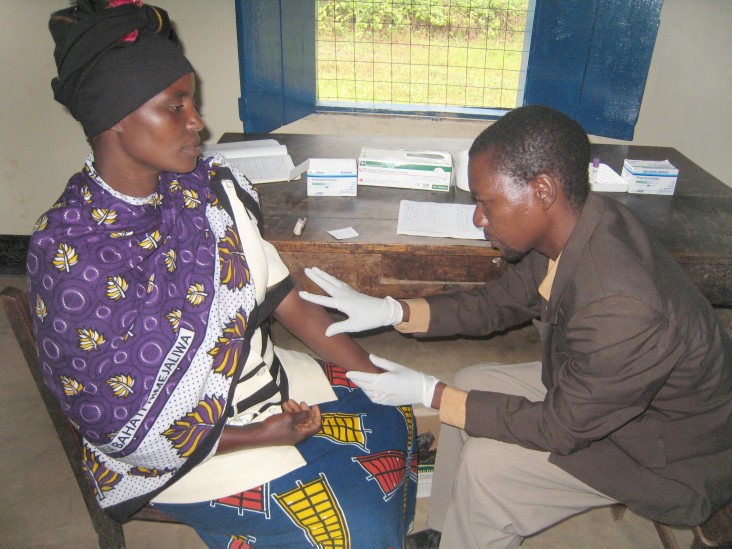
One gray midmorning, during the season of short rains in rural Tanzania’s western highlands, about 30 men and women take valuable hours away from farming and domestic chores to gather at a village meeting place. The mood is relaxed, despite the task at hand — HIV/AIDS counseling and testing.
In this impoverished and remote region, HIV infection is of growing concern. Much of the community lacks awareness about how the disease is transmitted, and there is a relatively low reliance on condoms, the only means of prevention besides abstinence.
The terrifying stigma associated with HIV often prevents people from seeking testing and sometimes even treatment. Others worry that they can’t spare the resources to travel to town for testing.
In response, a USAID-funded initiative decided to bring voluntary counseling and testing through mobile units. In partnership with the Kigoma Regional Hospital and other partners, and support from the U.S. President’s Emergency Plan for AIDS Relief (PEPFAR), counseling and testing was provided to individuals close to their homes.
Those being tested received results within minutes, reducing the pain and anguish associated with waiting. Anyone who tested positive received immediate, confidential counseling and funds to travel to the local hospital for more diagnosis and treatment. Project funding also covered travel and accommodations to receive, if prescribed, life-prolonging anti-retroviral drugs. This round of mobile testing identified 51 individuals who tested positive, who were then linked to care and treatment in Kigoma Region.
Emmanuel Mtiti, the project director, originally expected perhaps five or six of the “risk-takers” in each community to agree to be tested. The team was surprised to find that, in many of the 24 program villages, 100 or more people showed up. In the face of the overwhelming demand, “the mobile units simply ran out of testing materials,” Emmanuel said. The mobile units have followed up with three more rounds of testing.







Comment
Make a general inquiry or suggest an improvement.